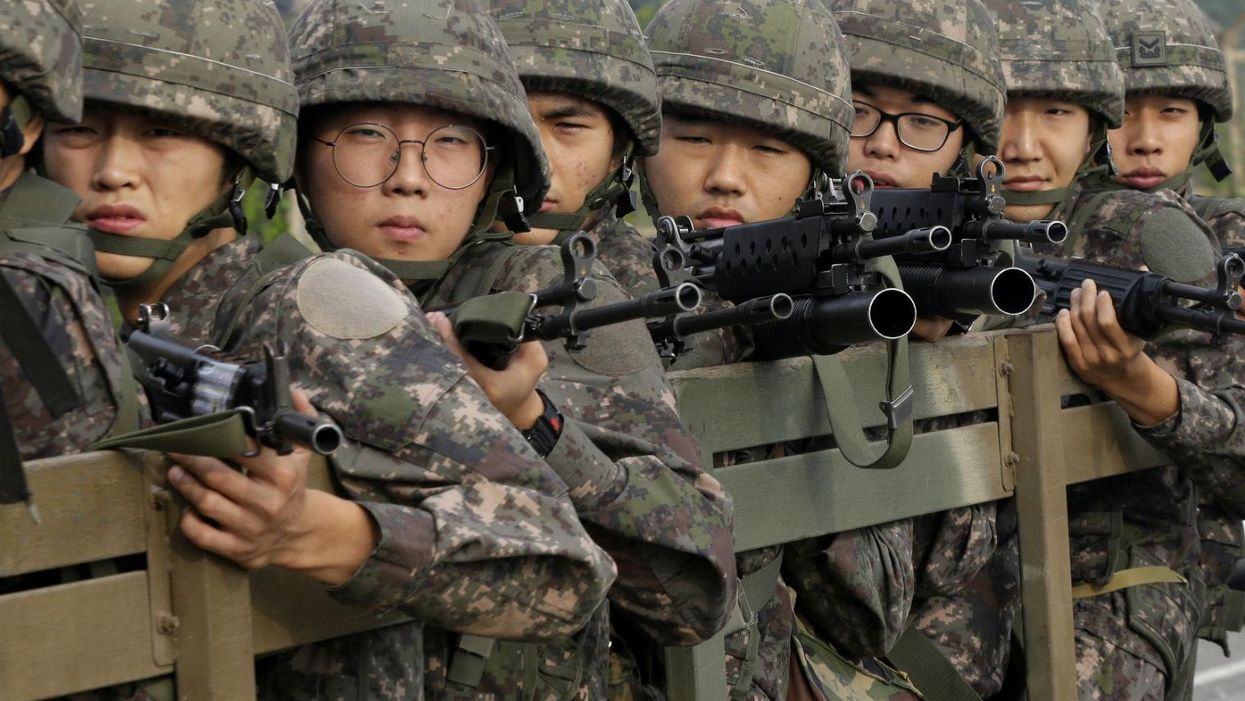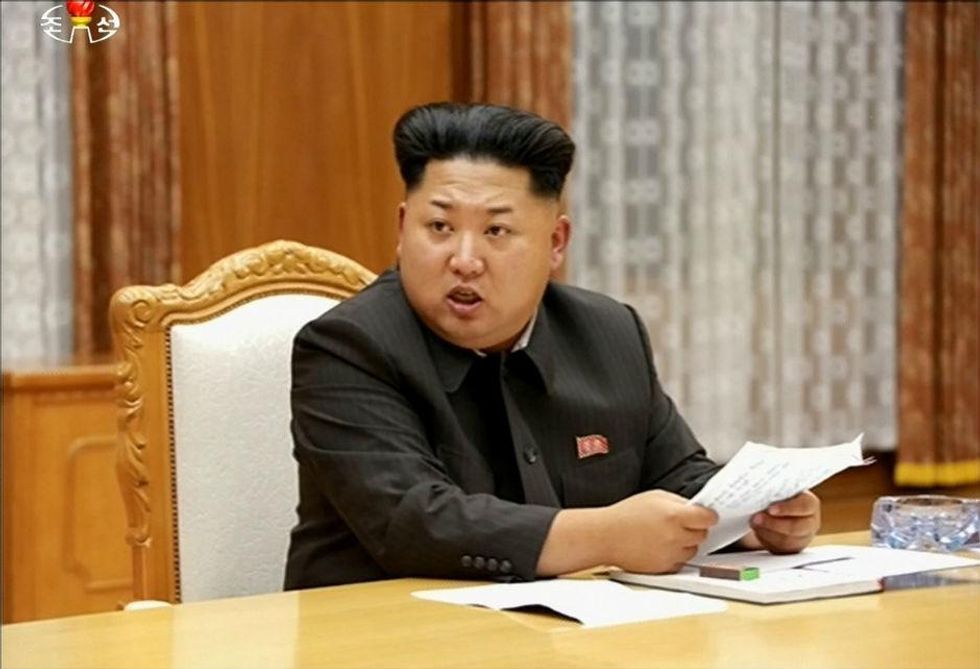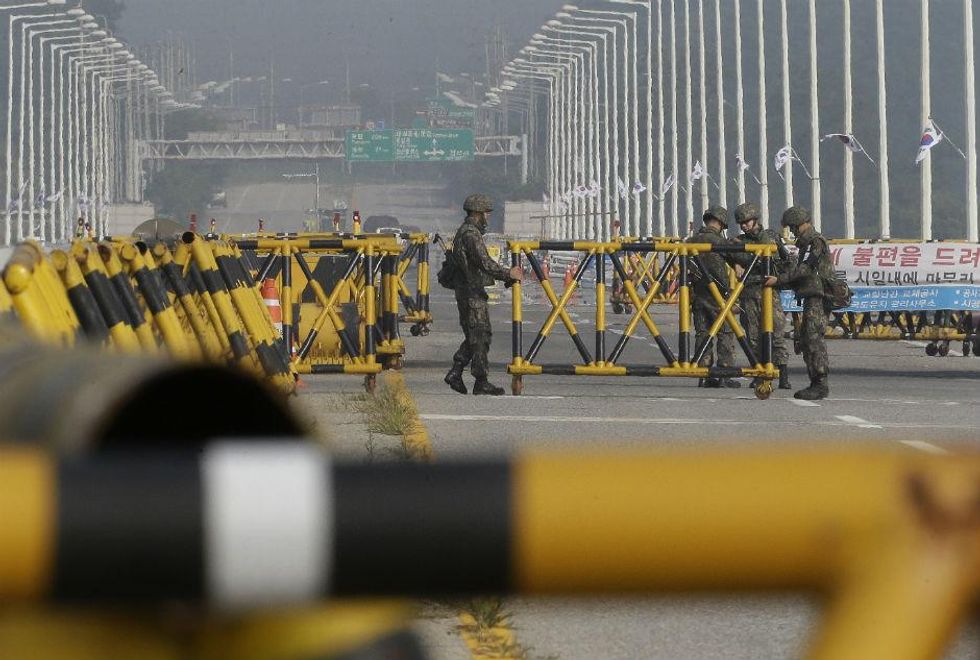News
Evan Bartlett
Aug 25, 2015

South Korean soldiers near the DMZ this week
A military conflict between North and South Korea has been avoided following marathon talks between senior officials.
In a summit at the "truce village" of Panmunjom, both countries agreed to concessions which have helped to defuse the tensions that had escalated in recent weeks.
Officials from Pyongyang expressed regret over a landmine incident which seriously injured two South Korean soldiers near the Demilitarised Zone (DMZ) on 4 August, while their counterparts from Seoul agreed to halt propaganda messages which were being blasted across the border.
South Korean national security adviser Kim Kwan-jin (r) shakes hands with Hwang Pyong-so, the top military aide to Kim Jong-un (Picture: EPA/Yonhap)The countries, which have technically been at war since the 1950s, had exchanged fire across the border last week while Kim Jong-un's regime had mobilised a fleet of submarines and sent soldiers to the border region.
Some had feared that the tensions could spill over into a full-blown war, but the de-escalation came as no great surprise to well-versed North Korean observers.
Why tensions have been defused
Speaking to i100.co.uk before the end of the summit on Monday, Alistair Coleman - North Korea analyst for BBC Monitoring - explained that the show of force was part of "Pyongyang's tried-and-tested cycle of provocation" which it uses to profit from diplomacy.
Kim Jong-un almost certainly knows that a war would most likely be a military disaster for North Korea, and if past incidents are anything to go by, will pull back from the brink once an advantage has been obtained.
- Alistair Coleman
However, Remco Breuker, professor of Korean studies at Leiden University in the Netherlands, believes that while the North may have enjoyed propaganda success in parading its army and showing its people how dangerous the outside world can be, its game may have ultimately backfired.
North Korea played this game rather badly. They have intimidated and threatened, but find themselves in an awkward position because South Korea and [its ally] the US have shown flexibility - by agreeing to the talks and postponing the military exercises - and at the same time resolve.
Seoul is not giving in to any demands if Pyongyang doesn't first acknowledge its part in the landmine incident.
- Prof Breuker
Indeed, both Prof Breuker's prediction that Seoul would stand firm over the landmine incident and Coleman's expectation that Pyongyang would concede after gaining some advantage (a halt to propaganda broadcasts) bore fruit.
A word on China's influence
Both analysts believe that the desires of China, which has serious economic and diplomatic influence over North Korea, could have played a role in the talks.
"One should never underestimate China's continued influence over Pyongyang," Coleman explained.
Sabre-rattling displeases Beijing, and its influence over North Korea's economy has acted like a brake in the past, and most likely will again.
- Alistair Coleman
More: South Korea is trolling North Korea by using loudspeakers to blast K-pop over the border
More: American tourist posts amazing photos from North Korea on Instagram
Top 100
The Conversation (0)















